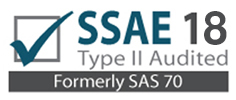Odoo caters to the diverse needs of businesses worldwide. Two primary editions, Odoo Community Edition (CE) and Odoo Enterprise Edition (EE), serve as pillars in this comprehensive business management software. In this article, we delve into the distinctions between these two versions, shedding light on their features, limitations, hardware requirements, scalability, flexibility, community involvement, and access rights configuration. While both editions share a common foundation, they cater to different needs and audiences. In this article, we will delve into the distinctions between Odoo Community Edition and Enterprise Edition.
- Community Edition (CE): Odoo CE is the open-source version that is freely available to the public. It provides a robust set of features for small to medium-sized enterprises (SMEs) and is supported by a vast community of developers. Released under the GNU Lesser General Public License (LGPL), Odoo CE allows users to modify and distribute the source code freely.
- Enterprise Edition (EE): Odoo EE is the commercial version designed for larger enterprises. It includes additional features, services, and support compared to the Community Edition. Proprietary licensing applies to Odoo EE, requiring users to purchase licenses based on the number of users.
Odoo Community - The Open Source Foundation
Odoo Community stands as the free, open-source version of the ERP system, governed by the LGPLv3 license. Developed and tested by the Odoo Community Association (OCA), this edition offers a range of customizable modules to meet various business requirements. However, certain limitations exist, such as the absence of unlimited functional support, version upgrades, hosting assistance, and the lack of support for mobile versions and studio apps.
While Odoo Community is a robust solution for small and medium-sized enterprises, it falls short in providing the full spectrum of functionalities available in Odoo Enterprise. Complete utilization of modules like Sales, HRMS, Website, eCommerce, and others is not achievable with Odoo Community alone.
Odoo Enterprise - Elevating Business Operations
Odoo Enterprise, an extended version of Odoo Community, introduces additional features that enhance operational speed, efficiency, and compatibility with mobile browsers. This paid version comes with unlimited functional support, frequent upgrades, and public and private cloud hosting support from Odoo SA.
Odoo Enterprise transforms companies from users of open-source software to providers of proprietary services. It includes several functional modules like Data Cleaning, Sign, Help Desk, Marketing Automation, Quality Management, Maintenance, Online Appointment, Subscription, and Studio, which are not part of the Odoo Community. Additional features such as barcode integration, shipping connector, MPS, VOIP, contribute to the weightage of Odoo Enterprise.
Key Differences
Odoo Community |
Odoo Enterprise |
|
General |
||
| Unlimited Functional Support | ✘ | ✔ |
| Version Upgrades | ✘ | ✔ |
| Hosting | ✘ | ✔ |
User Interface |
||
| Desktop (Web browser) | ✔ | ✔ |
| Mobile (Android and IOS) | ✘ | ✔ |
| Multi-Language | ✔ | ✔ |
Finance |
||
| Accounting | ✘ | ✔ |
| →Comprehensive Accounting: General Ledger, Bank Statement Reconciliation, Analytic Accounting, Vendor Bill OCR, Budgets, Check Writing, Consolidation,Localizations, Reports | ✘ | ✔ |
| Invoicing | ✔ | ✔ |
| →Payments | ✔ | ✔ |
| →Invoice automation | ✘ | ✔ |
| Expenses | ✔ | ✔ |
| Payroll | ✘ | ✔ |
| →Expense Digitalization (OCR) | ✘ | ✔ |
| →Reimbursements in Payslip | ✘ | ✔ |
| Documents | ✘ | ✔ |
| →Spreadsheet | ✘ | ✔ |
| Sign | ✘ | ✔ |
Sales |
||
| CRM | ✔ | ✔ |
| Sales | ✔ | ✔ |
| Point of Sale | ✔ | ✔ |
| →Loyalty Programs and Gift Cards | ✘ | ✔ |
| Subscriptions | ✘ | ✔ |
| Rental | ✘ | ✔ |
| Amazon Connector | ✘ | ✔ |
Websites |
||
| Website Builder | ✔ | ✔ |
| eCommerce | ✔ | ✔ |
| Blog | ✔ | ✔ |
| Forum | ✔ | ✔ |
| Live Chat | ✔ | ✔ |
| eLearning | ✔ | ✔ |
Inventory and MRP |
||
| Inventory | ✔ | ✔ |
| →Barcode | ✘ | ✔ |
| Manufacturing (MRP) | ✔ | ✔ |
| →Workcenter, Control Panel, Scheduling | ✘ | ✔ |
| PLM | ✘ | ✔ |
| Purchase | ✔ | ✔ |
| Maintenance | ✔ | ✔ |
| Quality | ✘ | ✔ |
Human Resources |
||
| Employees | ✔ | ✔ |
| →Departmental Dashboard | ✘ | ✔ |
| Recruitment | ✔ | ✔ |
| Time Off | ✔ | ✔ |
| Referrals | ✘ | ✔ |
| Appraisals | ✘ | ✔ |
| Fleet | ✔ | ✔ |
Marketing |
||
| Social Marketing | ✘ | ✔ |
| Email Marketing | ✔ | ✔ |
| →Mailing Templates | ✘ | ✔ |
| SMS Marketing | ✔ | ✔ |
| Events | ✔ | ✔ |
| Marketing Automation | ✘ | ✔ |
| Surveys | ✔ | ✔ |
Services |
||
| Project | ✔ | ✔ |
| Timesheet | ✔ | ✔ |
| →Grid View, Timer, Reminders, Timesheet Validation | ✘ | ✔ |
| Field Service | ✘ | ✔ |
| Help Desk | ✘ | ✔ |
| Planning | ✘ | ✔ |
| Appointments | ✘ | ✔ |
Productivity |
||
| Discuss | ✔ | ✔ |
| Approvals | ✘ | ✔ |
| To-Do | ✔ | ✔ |
| Calendar | ✔ | ✔ |
| VOIP | ✘ | ✔ |
| IOT | ✘ | ✔ |
Customization |
||
| Studio | ✘ | ✔ |
| →Screen Customization | ✘ | ✔ |
| →Report Designer | ✘ | ✔ |
| →Menu Editor | ✘ | ✔ |
| →Apps Creator | ✘ | ✔ |
Notable Similarities
Core Relationship and Database Sharing: Odoo Community serves as the foundation for Odoo Enterprise. They share the same database, core applications, and fundamental functionalities. Every feature within Odoo Enterprise has its roots in Odoo Community, showcasing the seamless integration between the two editions.
Hardware Requirements: Odoo ERP can operate on relatively modest hardware, making it a cost-effective solution for various businesses. While Odoo provides sample configurations, the optimal setup depends on the specific requirements of each case. There are no special hardware requirements for Odoo Enterprise, offering flexibility in infrastructure selection.
Scalability and Flexibility: Odoo's scalability is one of its defining features, catering to companies of almost any size. Proper infrastructure provider selection, application load balancing, and database replication enable scalability for global companies with significant geographical distribution. The modular structure of Odoo allows for unparalleled flexibility, making it the most scalable business application globally.
Community and Odoo App Store: Odoo boasts a large community of over 20,000 contributors worldwide, actively participating in its success. The Odoo Apps Store features more than 41,000 apps, with approximately 45% being free and 55% requiring payment. Users can install both community-developed apps and store apps in both the Community and Enterprise editions, though third-party apps cannot be added to Odoo Online.
Access Rights Configuration: Access rights in both Odoo Community and Enterprise editions feature standard rules suitable for small and medium-sized companies. However, companies with complex organizational structures may find basic access rights functionality insufficient, necessitating additional configurations in both editions.
Understanding the dynamics of Odoo Community and Odoo Enterprise is crucial for businesses seeking an ERP solution that aligns with their specific needs. While Odoo Community provides a solid foundation, Odoo Enterprise elevates business operations with additional features and support. The scalability, flexibility, and community involvement further reinforce Odoo's position as a leading business management software in the global market.



















